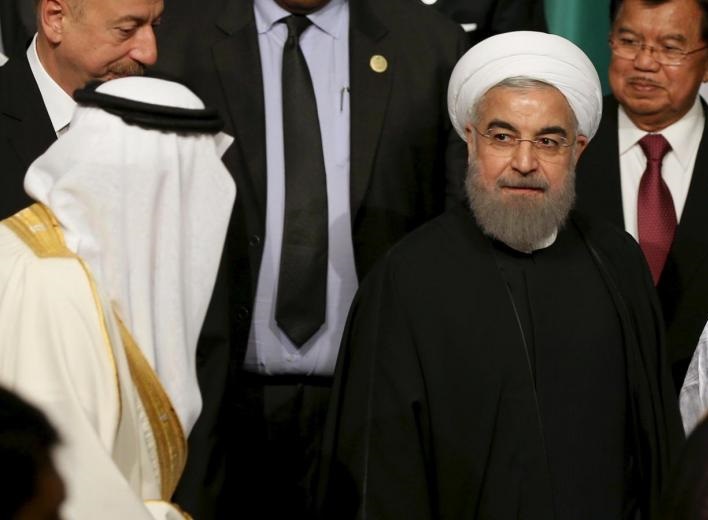Speaking in an interview with the website of the Strategic Council on Foreign Relations, Seyed Sabah Zangeneh stated that some countries in the region welcome the dialogue between Iran and Saudi Arabia and the possibility of improving relations, while expressing hope for a serious dialogue between the two countries and creating tangible and real results. The region, which has seen widespread pressure from Saudi Arabia to enter the Iran-Saudi bipolar ties, welcomes the talks and the change in Saudi policy in general. Because they have been affected by Saudi pressure in various areas.
Benefits of convergent policies for the region
Stating that Iran and Saudi Arabia are the two big and important countries in the region, he pointed to the effects of stability in the region on the economy and development of countries, especially energy exports, and added: If divergent policies turns into convergent policies, the benefits of this change in policy will surely affect all the countries in the region and we can see a kind of stability in the region in various dimensions.
Effects on policies of regional countries towards Zionist regime
The expert on regional affairs, stating that countries of the region welcome the positive political and security consequences of the dialogue between Iran and Saudi Arabia, said: If the conditions in the relations between the two countries are improved and relations are established naturally; it will certainly have an effect on the current that was launched to bring the countries of the region down to the feet of the Zionist regime, and that process will be very slow or stopped.
Zanganeh stressed: Countries of the region do not have a shortage that they want to supply from outside the region and neither Israel nor the United States has ever been able to provide security for other countries. Their permanent target has been to create tension, division and discord, therefore those who are inherently sources of tension, occupation and aggression can never provide security.
Referring to the huge investment that some countries in the region have put on the agenda to buy weapons from Western countries, he said that regional negotiation process has an impact on this arms race and added: Certainly, they also want to invest in infrastructure development, economic growth and increase in health and education levels.
Explaining the consequences of the effective Iran-Saudi dialogue, the analyst of West Asia affairs focused on US policy in the region, particularly the desire to reduce its direct presence in the Middle East and focus on East Asia, adding: Of course, beside those issues the US focus on the Saudi anti-human rights policies must be considered. The combination of those issues forces the United States to reconsider its overall policy in the region, especially in the Persian Gulf and West Asia, and the countries of the region, realizing this policy change, are seeking to adapt to the new conditions. From this point of view, they are also aware of the importance of Iran-Saudi Arabia relations.
Regional countries have to reconsider bilateral relations
Zanganeh pointed to some of the challenges that have plagued the region as a result of the severance of Iran-Saudi relations and said: The new conditions will definitely bring about changes in the political, security and economic spheres and countries will have to reduce the role of trans-regional powers and reconsider their relations with each other so that the region will not suffer more from the vacuum of those interactions, especially in relation to the abuse of terrorist and extremist groups.
Need to pay attention to collective and regional security
He expressed the hope that regional countries would reach the understanding that in practice they should not use affiliated and proxy groups against each other and should create security in the region collectively and in interaction with each other, adding: We have been witness to the welcome acceded by some countries to Iran and Saudi Arabia talks, but such remarks are just a statement, and it remains to be seen whether those statements can be turned into policies, programs and, of course, executive plans.
Creation of convergent atmosphere depends on effective dialogue between countries
Stressing that creating a convergent atmosphere and exploiting its results depends on effective dialogue between countries, Zanganeh said: Countries in the region must define and share threats and concerns in their interaction. Those concerns may be common to some areas, but there are also differences and conflicts that need to be addressed in the area of threats, concerns, targets, and future prospects. The mechanisms for getting out of the current situation and reaching the desired situation must be defined, and then hope can be placed in the creation of an atmosphere of convergence.
The expert on West Asia affairs said: Of course, it will take time for this convergence to be turned into cooperation and define big projects like the collective security plan in the region. Of course, there are plans for this idea around the world; China has defined plans for itself that embodies various economic, political and security dimensions in the Middle East. Russia has also expressed ideas, and the Americans have addressed those issues in their think tanks.
Zanganeh said that regional countries also have plans in mind that need to be turned into an agreed plan through consultation and dialogue with each other.










0 Comments